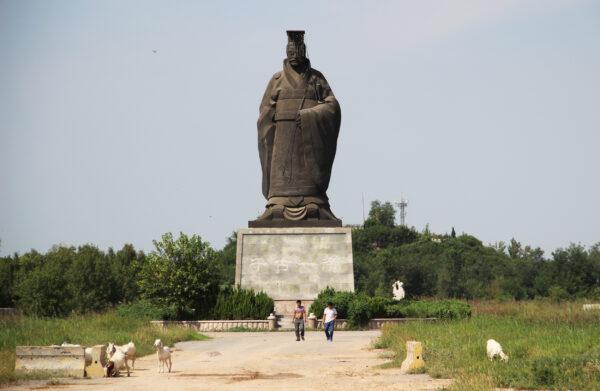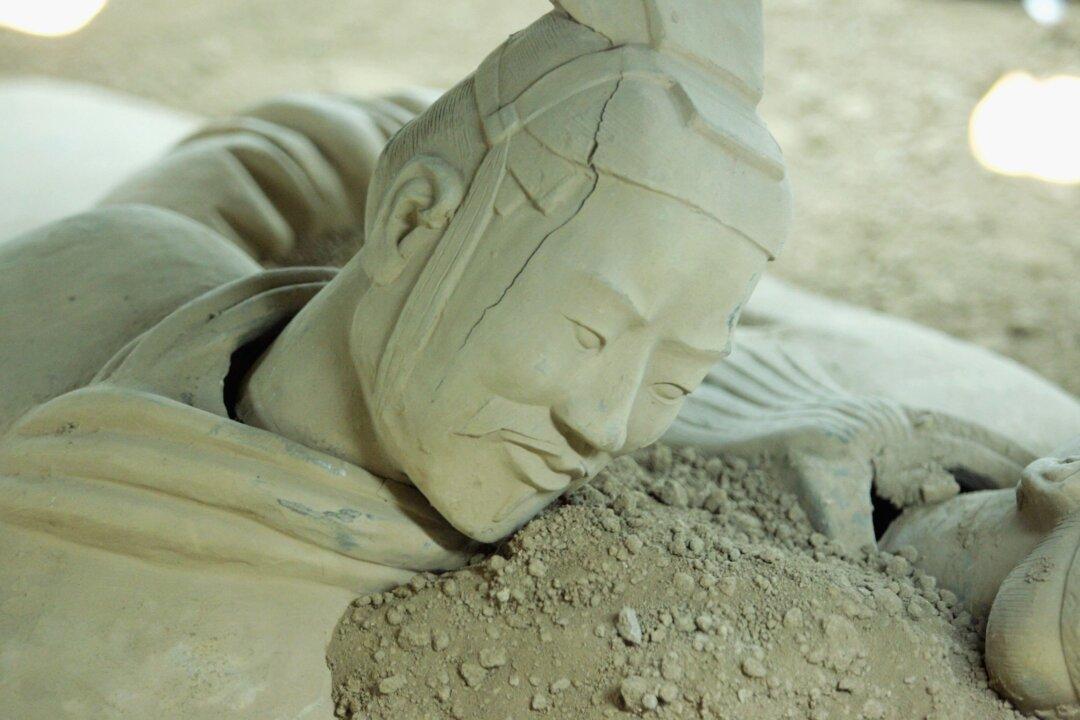A Chinese billionaire rattled the stock market by quoting an ancient poem on social media, reflecting on the fall of the Qin Dynasty—the first empire in China. Although the post was later deleted, his company’s stock plunged to a new low of the year.
“The Book Burning Pit,” read as “Fen Shu Keng” in Chinese, was a seven-character quatrain written by Tang dynasty poet Zhang Jie, questioning the tyranny of Qin Shi Huang, the first Emperor of the Qin Dynasty, or China, who ordered philosophical books to be burned as well as the burial of Confucian scholars alive for owning banned books.

On April 10, Alibaba was fined 18.2 billion yuan ($2.8 billion) by Chinese regulators for violating antitrust law, months after Ma publicly criticized regulators in October 2020.
Forced by public pressure, Wang issued a statement in the early hours of May 9, after deleting the previous post, explaining the poem was to remind himself of potential competitors. Meituan also responded that the outside world misread Wang’s post.
However, the clarification seemingly failed to play a role. Meituan’s Hong Kong-listed shares tumbled as much as 9.8 percent on Monday, before it plunged to a seven-month low, evaporating $16 billion of market value.
Dennis Guan, the senior analyst of eFusion, an asset management company in Hong Kong, said that the outlook of Meituan’s share price depends on whether the authorities will punish Meituan after the one-month review.
The Poem
One translation of “The Book Burning Pit” published on pureinsight.org reads as follows:“The Qin Dynasty is ruined with the burning of bamboos and fabrics.
“The Hangu Pass and the Yellow River guarded the residence of the ancestor of the Chinese dragon in vain.
“Before the ashes in the burning pit turned cold, a riot had already started in Shandong Province.
“It turned out that Liu Bang and Xiang Yu were both uneducated people.”

The poem reflects the idea that the tyrannical Emperor Qin Shi Huang of the short-lived Qin Dynasty, who buried over 400 scholars to try to silence their criticism of his rule, failed to maintain the foundation of his Dynasty, despite its superior geographic advantages. Moreover, the leaders that eventually overthrew the Qin Dynasty turned out to be non-intellectuals.




